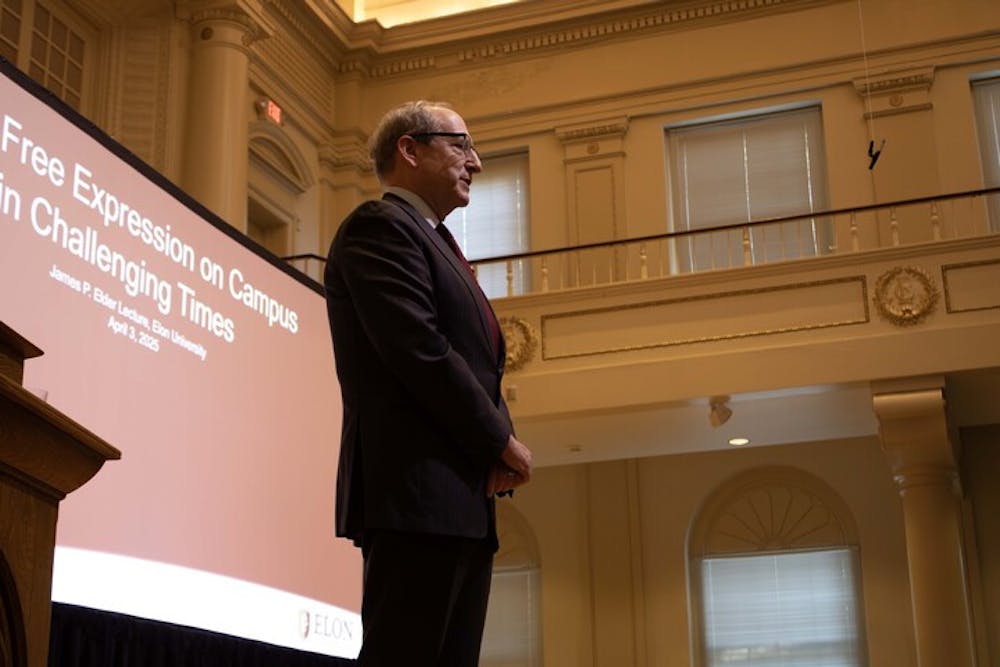Updated as of 4:30 p.m. on April 8 to include video.
Frederick Lawrence believes that telling someone they can’t speak is equivalent to cutting off their oxygen.
Lawrence, the secretary and CEO of Phi Beta Kappa honor society and First Amendment scholar, spoke to the Elon community Thursday evening in Whitley Auditorium. The James P. Elder Lecture marked the final event of the 2024-25 speaker series, and this year's installment of the endowed James P. Elder lecture series at Elon.
Lawrence believes in the freedom of expression. When it comes to freedom of expression on college campuses, Lawrence looks back on a question asked by President Eisenhower: will this or won’t this help us win the war?”
The “war” in this case, would be the university’s mission statement. And for Elon, like most colleges, the mission cannot be supported without the freedom of expression.
But Lawrence knows that it can be hard to determine the line between free speech and hate speech. And with recent debates involving this line on college campuses, it feels more relevant than ever.
When making this distinction, Lawrence urged his audience to look into the intention behind the action. Expression is only “wrong” in Lawrence’s books if it threatens or intimidates. Expression can make people uncomfortable but that doesn’t necessarily mean it’s wrong, according to Lawrence.
“It’s the price of living in a multicultural society,” Lawrence said.
When it comes to disagreeing with others, Lawrence stresses what he calls “intellectual humility.”
He advised his audience to find common ground whenever possible but knows that sometimes it just isn’t, calling it the “hardest piece of the puzzle.”
The James P. Elder Lecture marks the end of the speaker series since it started in 2006 and was named after James “Jim” Elder, an Elon alum who founded the Liberal Arts Forum as a student and then went on to teach history at Elon from 1963 to 1973. In the 10 years Elder worked at the university, he was voted “Outstanding Professor” by the student body five times.
Thirty years after Elder left Elon, his former students banded together and donated to name the series in his honor. To this day, over 150 former students and community members have contributed, and many of them come back to campus each year to listen to the lecture and celebrate an impactful professor.
Many alumni returned for the lecture that the floor section of Whitley Auditorium was reserved for them, faculty and other adult community members. Students watched from the balcony.
“He changed my life, he turned me into who I am,” Bob Lane, who first met Elder as a freshman in 1967, said.
Lane described Elder as an incredibly difficult professor and said it took him three years to finally earn an “A” in Elder’s class.
Lane attended the lecture with his wife Karen, who also graduated from Elon in 1971.
“He was amazing,” Karen Lane said. “He is so clear on his beliefs and how he sees things.”


